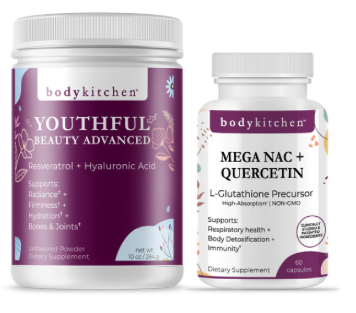CIRCADIAN RHYTHMS AND BLUE LIGHT'S EFFECT ON BRAIN
Blue light has been in the press a lot lately. The latest gadgets from Apple have a reduced blue light iPhone setting to minimize it, and you can now buy glasses to help cut down on your eyes' exposure to blue light. But why would you want to limit blue light in the first place, and is filtering it necessary? Read on to get the facts about blue light's effect on brain function and your eyes.
WHAT IS BLUE LIGHT?
Light is made of a spectrum of colors that come together to appear white. Blue light is one of the seven colors that form the spectrum. It is present in sunlight and emitted by both fluorescent and LED bulbs. Smartphones, televisions, and tablets also give off blue light. Compared to many other colors in the visible light spectrum, blue light has the shortest wavelengths and the highest amount of energy.
WHAT IS A CIRCADIAN RHYTHM?
To understand one of the ways that blue light stimulates brain activity, you need to know what a circadian rhythm is. The term refers to mental, physical, and behavioral changes that occur at specific points along a 24-hour cycle. Your circadian rhythms determine when you sleep and when you are awake.
WHAT DOES BLUE LIGHT DO TO YOUR BRAIN?
During the day, exposure to blue light stimulates your brain. Its presence inhibits the release of melatonin, a hormone that tells your brain to sleep. As a result, blue light plays a major role in helping you feel alert during the day.
WHAT IS CIRCADIAN RHYTHM SLEEP DISORDER?
Circadian rhythm sleep disorder refers to sleep problems when the body's natural circadian rhythms become imbalanced or misaligned. How the problem manifests depends on how your circadian rhythms are disturbed. If your daytime circadian rhythms aren't optimal, you may feel tired all day. Blue light stimulation is sometimes used to treat this type of circadian rhythm disorder because of its ability to suppress melatonin and increase wakefulness.
When circadian rhythm disorders involve nighttime circadian rhythms, you may struggle to fall asleep. Studies indicate that excessive exposure to blue light close to bedtime can contribute to this type of circadian rhythm disorder. The human body is meant to be exposed to blue light from the sun. Using mobile devices or watching television close to bedtime may cause overstimulation of the brain and lead to melatonin suppression, leaving you feeling wide awake when you should be getting sleepy. This is why experts recommend avoiding blue light immediately before bed.
DOES BLUE LIGHT DAMAGE THE EYES AND BRAIN?
Some people worry about potential blue light brain damage. Still, no reliable scientific studies show that exposure to blue light from cellphones and other devices damages your brain. Altogether avoiding blue light exposure may end up interfering with your circadian rhythms.
That's not to say that excessive exposure to blue light from devices doesn't have possible consequences. There is evidence to suggest that blue light eye damage may occur. Studies show that blue light may increase your risk of developing cataracts and age-related macular degeneration. In addition, blue light is thought to cause digital eyestrain, which impacts about half of all people who use computers. Symptoms of digital eye strain include blurry vision, eye irritation, and dry eyes.
DO I NEED TO AVOID BLUE LIGHT?
Based on current scientific evidence, there is no reason to avoid blue light. And that's good news because doing so would likely be impossible. The best approach for controlling the effects of blue light is to reduce your use of blue light-emitting devices at night to support restful sleep. If you work in front of a computer all day, you may also wish to invest in a pair of blue light glasses. However, most experts caution against wearing these glasses when you're not in front of a screen as they may cut down on blue light too much and lead to circadian rhythm disorder.
HOW LUTEMAX 2020 CAROTENOID PIGMENTS CAN HELP
Another way to protect your eyes from blue light damage is to take a dietary supplement like Lutemax 2020. This supplement is made from marigold extract and contains three vital carotenoid pigments: lutein, zeaxanthin, and meso-zeaxanthin. Studies have found that these natural substances act as antioxidants, meaning that they break down free radicals that can damage healthy cells. Specifically, carotenoid antioxidants have been shown to offer protective benefits for the eyes.
One major clinical study, the B.L.U.E. study revealed that Lutemax benefits the eyes by cutting down on eye strain, headaches, and glare sensitivity associated with blue light strain. In addition, the supplement has been shown to improve sleep quality in people suffering from circadian rhythm disorder related to blue light.
EXEED Mind dietary supplement contains Lutemax 2020 and other ingredients that support mental clarity and cognitive function. The supplement may help you feel more alert and focused during the day and support eye health.
















